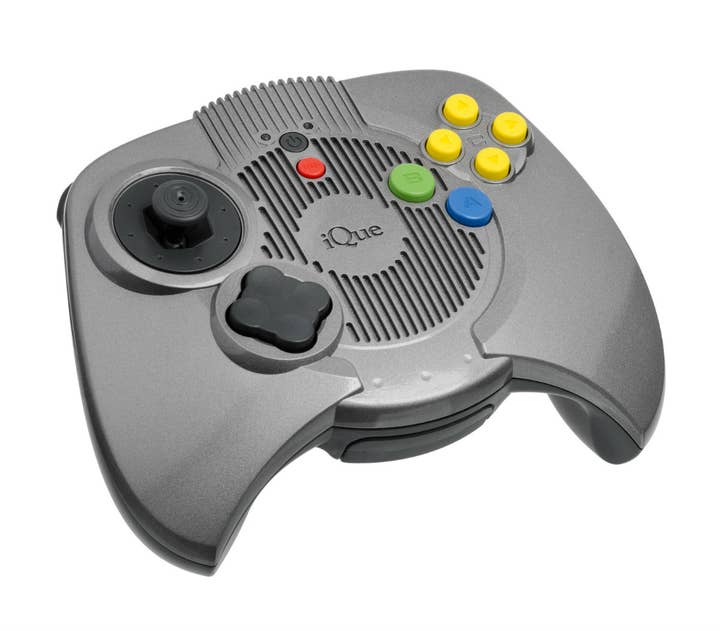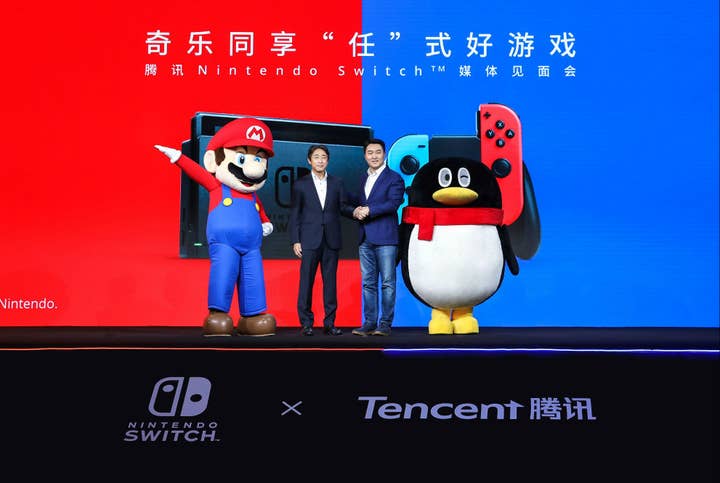Nintendo Switch faces an uphill slog in China | Opinion
China is a country with little interest in consoles, so success for the Switch will require building a whole market segment from nothing
The Switch is having an extraordinary year, with Nintendo's console and its software line-up cleaning up in pretty much every market. Switch Lite seems to be quietly racking up additive sales without cannibalising those of its older (and more expensive) stablemate, while games like Pokémon Sword and Shield are giving the platform a pretty amazing run at a Christmas season from which the other console platform holders have largely absented themselves.
Last year, Nintendo got a little over-enthusiastic in its full year projections for Switch and had to revise its figures down slightly. Now the pendulum has swung, and it seems almost certain that its current targets are a significant underestimation of the bumper year it's actually having.
Unsurprisingly, that's all been having a positive effect on Nintendo's share price, which after an undeservedly rough 2018 is up around 47% so far this year. It's not just about Switch, though; the company's mobile game strategy seems to be settling into something profitable and sustainable -- though not quite the cash-printing machine that some investors had rashly hoped for -- and there have been positive moves to expand and capitalise upon its IP by opening Nintendo stores in prime locations, loosening its grip to permit popular adaptations like this year's Detective Pikachu movie, and prepping the much-anticipated Nintendo theme park in Osaka to open in time for next year's Olympics tourist boom.
"The Chinese market is primarily mobile focused, and everything that isn't mobile is PC"
If there's one thing that investors are more excited about than anything else in Nintendo's near future, though, it's the launch of Switch in China. The announcement in April that it would be partnering with Tencent for a Chinese launch was a very big deal, and more details have been eagerly awaited ever since. The wheels are turning rather faster than most people expected, though; some analysts seemed to think this launch couldn't possibly happen during the current fiscal year, but it transpires that Switch will roll out in China in just a few days, on December 10. The console will launch at ¥2099 (about $300, or €270), with games -- of which there are about 20 going through the approvals process at the moment -- priced at around ¥299 Yuan ($42 / €38).
Those prices alone suggest a really interesting contrast with how Nintendo has traditionally engaged with China. The company's previous attempts to introduce its consoles to the Chinese market came through a joint venture called iQue -- which was really designed as a way to figure out how to get Nintendo brands and IPs into a country that, at the time, had extremely lax IP protection laws and very high price sensitivity.

Nintendo knew it wanted to be in business there, but it needed workarounds to prevent that from undermining its efforts in other markets, so iQue was a way to be in China without really being in China. The core Nintendo brand was kept clear, and peculiar special versions of the company's consoles allowed it to package up and deliver games in a way (and at a price) that was quite different to how things worked elsewhere.
iQue's efforts were clever in their own way, but never actually particularly successful, not least because of this neither-fish-nor-flesh approach. People who were actually aware of and interested in owning a Nintendo console would still prefer a grey market import from Hong Kong or elsewhere, which denied the company the core market it might otherwise have built upon.
The new partnership with Tencent for Switch is a wholly different approach, which is in many ways a testament to how quickly the Chinese market has changed. Question marks remain over IP protection in China, but it's far from the free-for-all it was only a few years ago, and the extremely rapid development of its consumer economy clearly outbalances any concerns about IP that Nintendo may still have.
"After the past few years, I'm not sure I'd bet against Nintendo's ability to pull it off in the end"
The Chinese version of Switch and its games are effectively the same as those found elsewhere -- the same hardware, with the same distribution model -- and the price point is also not notably different from how Switch and its software are priced overseas. We hear a lot of talk about the emergence of the Chinese middle-class in abstract terms, but here's a concrete example of that at work within our own industry. This shouldn't be a surprise, of course, given the enormous importance of the Chinese market to luxury brands in general, but it's still an important marker of the normalisation of China as a market for games.
Despite this, however, I think it's reasonable to be nervous about Nintendo's prospects in China -- especially given the artificially high expectations some investors seem to have for the performance of Switch in that market. This launch is going to be a hell of an uphill struggle for Nintendo even given Tencent's backing, because console gaming is nowhere in China; the market is primarily mobile focused, and everything that isn't mobile is PC.
Online gaming, which is far from being Nintendo's forte, is the order of the day. PlayStation and Xbox are already in this market, incidentally, and if you're thinking that you very rarely hear anything about that, well, there's a pretty good reason for the silence -- their entire slice of the gaming market is barely a rounding error on top of the mobile and online revenues.
Nintendo knows this, of course (after all, it has partnered with Tencent, which has a share of those markets that is far, far bigger than a rounding error) and it's reflected in the way they're marketing Switch in China. The launch trailers and advertisements for the console position it as an inclusive, social activity, deliberately contrasting the social nature of gaming on Switch with the much more isolated (in physical interaction terms) experience of mobile gaming. This is a smart piece of positioning and is clearly an attempt to carve out a new market that can coexist with other forms of gaming in China.
Hell, it might even work, but the very nature of those ads and their need to show how Switch can be different and complementary to the existing gaming paradigm is telling. Launching in China is just not going to be as simple or straightforward as coming into a market with ready-made demand for console gaming products. To make China work as a market, Nintendo needs not only to dramatically outperform any console that has ever launched there before, it also needs to create a whole new category of product in the mindset of Chinese consumers.
That's a big ask, obviously, and I suspect that even if it can be accomplished, it will take a lot of time and effort. After the past few years, I'm not sure I'd like to be on the side of betting against Nintendo's ability to pull it off in the end, but I fear that there could be more bumpy times ahead for the firm in the stock market -- because the easy payday investors are expecting from China is actually going to be a tough, if potentially very rewarding, slog.

